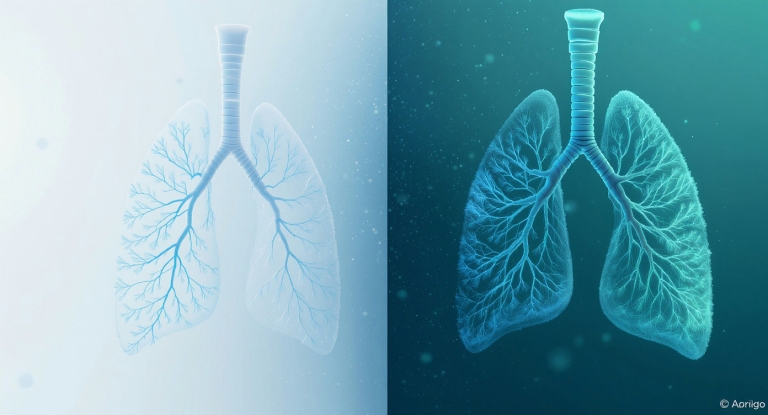Heart Palpitations: When to Worry and When It’s Normal
Heart Palpitations: When to Worry and When It’s Normal
Heart flutters at your desk. A skipped beat on the subway. A sudden thud in your chest when you lie down at night. Most people in Toronto will experience heart palpitations at some point, and it can be unnerving—especially when you’re not sure if what you’re feeling is harmless or a reason to seek care.
At Care&, we understand how worrisome palpitations can feel, even when they’re benign. This guide explains what palpitations are, why they happen, when to relax, and when to book a medical appointment. You’ll also learn the practical steps that help most people feel better, and how Nurse Practitioners at our Toronto medical clinic approach diagnosis and management with unrushed, evidence-based care.
Table of Contents
- What exactly are heart palpitations?
- Common reasons palpitations happen
- When to ignore it—and when not to
- Underlying conditions that may require evaluation
- How Nurse Practitioners assess palpitations
- Practical steps you can take today
- Special considerations across life stages
- Myths and facts
- How Care& supports you in Toronto
- What to expect at your Care& visit
- Practical next steps
- Navigating care in Toronto
- How we tailor care to you
- Tests and coverage in Ontario
- When palpitations aren’t “just palpitations”
- Frequently Asked Questions
What exactly are heart palpitations?
“Palpitations” are the awareness of your heartbeat. You might notice:
- A fluttering or flip-flop
- A skipped or extra beat
- A pounding heartbeat
- A racing sensation (fast heart rate)
These sensations can occur at rest or with activity, last seconds to minutes, and sometimes come with chest discomfort, lightheadedness, or anxiety. Palpitations are a symptom, not a diagnosis. They’re often harmless, but occasionally they signal a heart rhythm issue or another medical condition that needs attention.
Experiencing concerning heart palpitations?
Book a same-day appointment with a Care& Nurse Practitioner for a thorough assessment and personalized care plan.
Common reasons palpitations happen (and are usually harmless)
Many day-to-day triggers can make a normal heart feel very noticeable. At Care&, we see these frequently:
- Stress and anxiety: Adrenaline can make your heartbeat stronger or faster. Panic episodes often amplify this sensation.
- Caffeine and energy drinks: Coffee, tea, espresso, energy drinks, and some pre-workout supplements stimulate the heart.
- Dehydration or electrolyte imbalance: Common in hot weather, after long workouts, or with alcohol use.
- Alcohol and nicotine/vaping: Both can irritate the heart’s rhythm, even the day after drinking (the “hangxiety” effect).
- Lack of sleep: Sleep deprivation is a potent trigger.
- Fever and illness: Viral infections, including COVID-19, can temporarily increase heart rate.
- Medications: Decongestants (like pseudoephedrine), asthma puffers, some weight-loss or ADHD medications, and certain herbal stimulants.
- Hormonal changes: Pregnancy, postpartum, perimenopause, and thyroid imbalance can contribute.
- Post-exercise palpitations: Common after intense workouts or when cooling down.
- High-sugar or high-carb meals: Blood sugar shifts can be felt as heart flutters in some people.
These causes are often manageable with lifestyle adjustments and don’t necessarily mean anything is wrong with your heart.
When to ignore it—and when not to
It helps to separate “reassuring” patterns from “red flags.”
Reassuring patterns
(often okay to monitor at home for a short period)
- Brief flutters that pass within seconds
- Episodes linked clearly to caffeine, stress, alcohol, or poor sleep
- Palpitations after intense exercise that resolve with hydration and rest
- No associated chest pain, severe shortness of breath, fainting, or persistent dizziness
- You feel otherwise well and your usual activities aren’t limited
Red flags: Seek care urgently or call 911
- Fainting or near-fainting with palpitations
- Chest pain or pressure, especially if heavy or spreading to jaw/arm
- Severe shortness of breath or new trouble breathing
- Palpitations that are sustained (many minutes) and accompanied by weakness or confusion
- Heart rate above 120 at rest that doesn’t settle, or above 150 with minimal activity
- A known heart condition, previous heart attack, or cardiomyopathy and new palpitations
- Palpitations after using cocaine or other illicit stimulants
- New palpitations in pregnancy with concerning symptoms
In Ontario, urgent symptoms should be assessed through 911 or the nearest emergency department. If your symptoms are non-urgent but concerning, Care& typically offers same or next-day appointments at one of our locations, and our team can help you decide next steps through a virtual appointment.
Underlying conditions that may require evaluation
While many palpitations are benign, some warrant a closer look:
Heart rhythm issues
Such as atrial fibrillation, supraventricular tachycardia (SVT), atrial flutter, frequent premature beats (PVCs/PACs), or more rarely, ventricular arrhythmias.
Thyroid disorders
An overactive thyroid speeds up the heart.
Anemia
Low hemoglobin makes the heart work harder.
Electrolyte abnormalities
Low potassium or magnesium can provoke palpitations.
Structural heart disease
Valve problems or cardiomyopathy.
Sleep apnea
Repeated nighttime oxygen dips can trigger arrhythmias.
Post-viral or post-COVID changes
Temporary heart-rate variability is not uncommon.
Medication effects
Some prescription and over-the-counter drugs can contribute.
A careful assessment can determine whether you need simple lifestyle adjustments, medication, monitoring, or specialist input.
How Nurse Practitioners assess palpitations at a primary care visit
At Care&, unrushed appointments give space to understand your story—because your pattern often guides the diagnosis. A typical evaluation may include:
Detailed history
When it happens, how it feels, duration, triggers, associated symptoms, caffeine/alcohol intake, sleep, stress, exercise, supplements, and medications.
Physical exam and vitals
Including heart rate, rhythm, blood pressure, oxygen level.
Baseline testing
Common initial labs include complete blood count (for anemia), TSH (thyroid), electrolytes, kidney function, and sometimes iron studies. Our on-site lab collects samples and sends them to external laboratories for analysis.
ECG and heart monitoring
A standard ECG or a Holter/event monitor captures your heart rhythm. While ECGs aren’t performed on-site at Care&, our Nurse Practitioners can refer you to external diagnostic centres where OHIP typically covers these tests when medically indicated.
Additional testing when needed
Echocardiogram, sleep study referral, or cardiology referral.
If your palpitations are active during the visit, a real-time ECG is ideal. If they come and go, a monitoring device worn for 24 hours to two weeks can catch episodes.
Care& App: Track Your Heart Symptoms
Our medical app helps Toronto patients track symptoms, view results, and follow your plan. Secure messaging with our admin team helps coordinate requisitions and referrals.
Available Features:
- Symptom Tracking
- Lab Result Access
- Virtual Appointment Booking
- Secure Provider Messaging
For many patients, telemedicine or a virtual appointment is a convenient way to begin.
Practical steps you can take today
Small changes often calm palpitations within days to weeks. Try:
1. Hydrate consistently
- Aim for 2–3 litres of fluids daily, more on hot or high-activity days.
- Add a balanced electrolyte drink during or after workouts; avoid high-sugar options.
2. Reassess caffeine and stimulants
- Cut back coffee/espresso/energy drinks. Try half-caf or switch to tea.
- Avoid pre-workout powders or fat-burners with stimulants.
- Check decongestant labels (pseudoephedrine, phenylephrine) and discuss alternatives.
3. Sleep and stress care
- Prioritize 7–9 hours of sleep; consistent bed/wake times matter.
- Use calming techniques: slow-breathing exercises, mindfulness apps, gentle evening walks.
- If anxiety is a driver, evidence-based anxiety treatment and counseling can help. Care& offers support in this area.
4. Moderate alcohol and nicotine
- Many people notice next-day palpitations after drinking. Reduce frequency and quantity.
- Consider nicotine cessation support; alternatives like NRT may be appropriate.
5. Nutrition basics
- Regular meals with protein, complex carbs, and healthy fats to steady blood sugar.
- If you suspect low iron, speak with a clinician before starting supplements. Care& can order lab tests to confirm anemia or iron deficiency.
6. Track your episodes
- Note time, duration, activity, and triggers (caffeine, alcohol, stress, illness, exercise).
- Bring a record to your appointment; patterns are diagnostic clues.
7. Gentle activity
- If cleared by a clinician, light-to-moderate exercise can reduce stress and stabilize heart rate variability over time.
8. Vagal maneuvers—only with guidance
- Techniques like a gentle Valsalva can sometimes stop certain fast rhythms, but they should be taught by a clinician to ensure safety and correct use.
If symptoms persist or worsen despite these steps, book a medical appointment. At Care&, on-time medical appointments and an unrushed approach let you discuss what’s working and what isn’t without feeling rushed.
Need personalized guidance for your heart palpitations?
Our Nurse Practitioners offer unrushed appointments to address your concerns and develop an individualized plan.
Special considerations across life stages
Pregnancy and postpartum
Hormonal shifts and increased blood volume can cause palpitations. Most are benign but should still be evaluated, particularly if accompanied by dizziness, chest discomfort, or breathlessness. Care& provides women’s health support and can coordinate obstetrical referrals when needed.
Adolescents and young adults
Growth, sports, energy drinks, and variable sleep are common triggers. Pediatric care at Care& addresses both lifestyle and medical factors and helps establish safe exercise routines.
Perimenopause and menopause
Hot flashes, sleep changes, and hormonal shifts can amplify heartbeat awareness. Tracking episodes and checking thyroid and iron status are often helpful. Our team supports women’s health holistically.
Men’s health and fitness routines
Pre-workout stimulants and high-intensity training can provoke palpitations. We tailor guidance to maintain performance while reducing triggers.
Anxiety and panic
Anxiety can cause palpitations—and palpitations can trigger more anxiety. Both need attention. Care& offers anxiety treatment and counseling approaches that help break the cycle.
Myths and facts
“If my heart skips a beat, I’m having a heart attack.”
Most skipped beats are benign extra beats (PVCs or PACs). Heart attacks usually involve heavy chest pressure, breathlessness, nausea, or sweating—medical emergencies that require 911.
“Palpitations mean I need medication.”
Not always. Many resolve with sleep, hydration, stress reduction, and caffeine/alcohol changes. Medication or cardiology referral is reserved for specific diagnoses.
“If my ECG is normal, I’m fine.”
A normal in-office ECG is reassuring, but if your palpitations are intermittent, a longer wearable monitor may be needed to capture events.
How Care& supports you in Toronto
Palpitations are personal. At Care&, we believe the best care is unhurried, thorough, and easy to access.
Nurse Practitioner-led primary care
Nurse Practitioners at Care& provide comprehensive assessment, diagnosis, and management for most primary care concerns—comparable to the care you’d expect from a family doctor. If specialist care is needed, we coordinate referrals.
Appointment-based care with access that fits your life
Care& is not a walk in clinic. Appointments are required, and our team typically offers same or next-day options. This model provides an alternative to traditional walk-in clinics and a practical option if you’ve been searching for a family doctor near me or family doctors accepting new patients in Toronto.
Unrushed, on-time visits and unlimited follow-up
We offer unrushed appointments that start on time, with memberships that include unlimited healthcare appointments—ideal when you’re tracking symptoms or adjusting lifestyle factors over a few weeks.
Convenient testing and coordination
Our on-premise lab collects blood and other specimens, and we arrange external testing (like ECG, Holter, echocardiogram) when indicated. Results and trends are available in the Care& app with secure access to your health records.
Virtual care and telehealth services
Many patients start with a virtual appointment through telemedicine. We can triage, order labs, and plan monitoring remotely, then bring you in for an exam when needed.
If you’ve been searching online for a medical clinic near me or browsing medical clinics by neighbourhood—Lawrence Park medical clinic, Yorkville medical clinic—Care& provides two convenient locations: Lawrence Park and Yorkville. We’re an appointment-based alternative to walk-in clinics with Nurse Practitioners accepting new patients through our membership model.
Looking for a family doctor alternative in Toronto?
Care& offers Nurse Practitioner-led primary care with same or next-day appointments at our Yorkville and Lawrence Park locations.
What to expect at your Care& visit
A calm conversation that explores your symptoms, routines, and goals
Vital signs, physical exam, and a personalized plan for testing
Clear guidance on what to do if symptoms escalate
Lifestyle support, including nutrition counseling if needed
Follow-up plan: with unlimited appointments for members, we can check in as often as needed while we fine-tune your care
Care& locations in Yorkville (162 Cumberland St, Suite 200) and Lawrence Park (3080 Yonge St, Suite 6010) are designed for privacy and efficiency. We value on-time medical appointments, and our mobile app streamlines booking, results, and prescription refills.
Practical next steps if you’re experiencing palpitations
1. Decide on urgency
- Call 911 for red flags (chest pain, fainting, severe shortness of breath).
- Otherwise, book a primary care visit within a few days—especially if palpitations are new, frequent, or bothersome.
2. Prepare for your appointment
- Write down episode details, triggers, and any phone/wearable heart-rate data.
- Bring a list of medications and supplements, including OTC decongestants or pre-workouts.
- Note caffeine, alcohol, sleep patterns, and recent illnesses.
3. Begin simple changes now
- Reduce caffeine/alcohol, hydrate well, and commit to 7–9 hours of sleep.
- Avoid stimulant decongestants; ask your clinician for alternatives if congested.
- Try a daily 10–15 minute relaxation routine.
4. Follow your plan and stay connected
- Use the Care& app to view lab results, monitor trends, and keep track of symptoms.
- If you’re a member, use unlimited appointments to refine your plan without delay.
If you’re struggling to find a healthcare provider who has time to fully address your concerns, Care& offers an alternative to family doctor shortages: Nurse Practitioner-led primary care with unrushed appointments and coordinated testing in Toronto. Booking is simple through our app or web portal.
Ready to address your heart palpitations?
Care& provides thorough, unhurried appointments with experienced Nurse Practitioners who will listen to your concerns.
Navigating care in Toronto: your options
Traditional family doctor
If you have a family doctor, book a visit to discuss palpitations. Many clinics can order labs and monitoring, though wait times vary. If you’re searching for a family doctor near me and having difficulty, Care& can help bridge the gap.
Walk-in clinic
Walk-in clinics can handle acute concerns, but short visits may not fit ongoing monitoring. Care& is not a walk-in clinic and requires appointments, offering continuity and comprehensive follow-up as an alternative to walk-in clinic visits.
Nurse Practitioner-led clinic (Care&)
Nurse Practitioner Toronto care at Care& includes comprehensive primary care, preventive screening, and chronic disease management. For palpitations requiring repeated touchpoints, unlimited appointments are especially valuable.
Telehealth
Telehealth services can start the process quickly: discuss symptoms, order labs, and plan monitoring. Care& offers video and phone visits, with in-person follow-up when needed.
Business and employee care
Workplace stress and sleep disruption are common triggers for palpitations. Care& provides corporate health services and employee healthcare solutions that support workplace wellness, from stress management to rapid primary care access.
How we tailor care to you
If anxiety is a driver
We integrate counseling and practical tools to reduce adrenaline surges and improve sleep. Anxiety treatment can dramatically reduce palpitations over time.
If nutrition or anemia is suspected
Care& provides nutrition counseling and appropriate testing for iron and vitamin deficiencies, with evidence-based supplementation plans.
If a heart rhythm issue is found
We discuss safe activity, teach symptom management, and coordinate cardiology referrals. Your Care& Nurse Practitioner remains your point of continuity, so nothing falls through the cracks.
If palpitations affect kids or teens
Our pediatric care team takes a family-centered approach, assessing growth, activity, sleep, and diet, and coordinating pediatric cardiology referrals when appropriate.
For those managing chronic conditions or adjusting lifestyle factors, having unlimited access to healthcare guidance can make a significant difference. Care&’s membership model includes unlimited appointments to support your ongoing health journey.
Interested in membership-based healthcare?
Our membership includes unlimited appointments, on-site lab collection, and continuous support for your health goals.
A note on tests and coverage in Ontario
- Bloodwork and many diagnostic tests ordered by Nurse Practitioners are typically covered by OHIP when performed at public labs or hospital-based diagnostic centres.
- Care& does not perform ECGs or imaging on-site but coordinates referrals and requisitions.
- Care& is a private, appointment-based medical clinic and does not bill OHIP for visits. Membership and pay-per-use options are available; details are on our app and website.
- All services, including lab collection at Care&, require pre-booked appointments; there are no walk-in options.
When palpitations aren’t “just palpitations”
Trust your instincts. If something feels different—more intense, more frequent, or accompanied by symptoms you’ve never had—book a visit. Early evaluation can bring peace of mind, catch reversible causes like thyroid imbalance or anemia, and fast-track appropriate monitoring if needed.
At Care&, we believe your health deserves time, clarity, and continuity. If palpitations are worrying you, we’re here to help you understand what your heart is telling you and build a plan that fits your life.
Frequently Asked Questions
Q1: How do I know if my palpitations are serious?
At Care&, we look for red flags: fainting, chest pain/pressure, severe shortness of breath, or a sustained resting heart rate over 120 that doesn’t settle. These warrant urgent assessment. Brief flutters tied to caffeine, stress, or poor sleep are often benign. If symptoms are new, frequent, or disruptive, book an appointment so we can assess and, if needed, order testing.
Q2: Can anxiety or caffeine really cause strong palpitations?
Yes. Adrenaline from anxiety and stimulants like caffeine can make a normal heart feel loud, fast, or irregular. Many patients improve by reducing caffeine, improving sleep, and using stress-management strategies. Care& offers anxiety treatment and counseling alongside medical evaluation to address both the trigger and the symptom.
Q3: What tests might I need for palpitations in Ontario?
Common first steps include bloodwork (CBC, electrolytes, TSH) and an ECG. If episodes are intermittent, a Holter or event monitor helps capture the rhythm over days or weeks. Care& collects lab samples on-site and provides requisitions for external ECG and monitoring; these diagnostics are typically OHIP-covered when medically indicated.
Q4: I can’t find family doctors accepting new patients. Can Care& be my primary care?
Yes. Care& provides Nurse Practitioner-led primary care—an effective alternative to a family doctor. Our membership includes unlimited appointments, unrushed visits, on-time scheduling, and coordination of external tests and referrals. We’re appointment-based (not a walk in clinic) and typically offer same or next-day availability.







